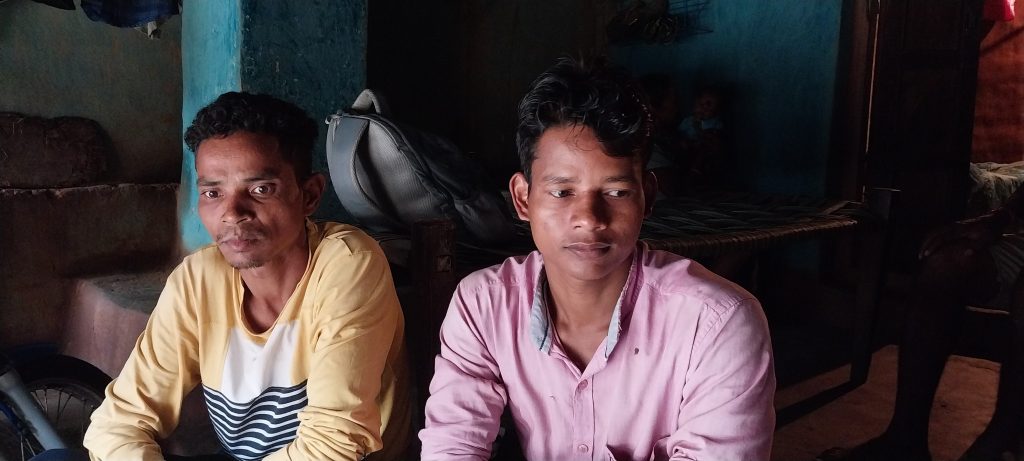In several villages of Odisha’s Rayagada district, tribal farmers have handed over their lands on lease for the cultivation of eucalyptus. But it is giving rise to soil infertility and water shortage, writes Deepanwita Gita Niyogi
As the sun slowly set in, two Kondh tribal women led the way to their dongar lands in Muniguda block of Rayagada district in Odisha. These are traditionally situated in hilly slopes and the women climb daily to reach them. Here, they grow millets and pulses. Dongar plots are known for their mixed cropping system where 10-12 types of crops are cultivated.
But though dongar cultivation is continuing, a change has come about in the low-lying lands in Muniguda where plots, once owned by tribals, are now being used for eucalyptus cultivation for paper mills. As a result, lands are becoming infertile and the soil moisture content is reducing. As eucalyptus needs a lot of water in order to survive, this is affecting water availability.
“In case there are lands surrounding a plot having eucalyptus, farming suffers as the trees suck a huge quantity of water. But many tribals are giving away their lands on lease for the crop to people coming from Andhra Pradesh and Telangana at a minimal rate for ready cash. Often, it is Rs 3,000 per acre for 12 months. There are local middlemen at play,” Jagannath Manjhi, a resident of Muniguda, said. In the beginning, the rate offered was Rs 1,500 per acre for a year. Then it was increased to Rs 2,000 per acre annually.

Trinath Hikaka, a resident of Boriguda village of Rayagada, is aware about this situation and is worried. According to him, it is happening in villages like Purikona, Badameridi and Shibarampurtoo. “The people who are growing eucalyptus on lands after taking them on lease are outsiders. They are taking the lands for 15-20 years.”Over a chat at his home, Hikaka informed that a few of his friends have given over cultivable lands for eucalyptus and even cotton cultivation. According to him, such monoculture plantations are leading to severe ecological implications.
Adverse impacts
In Muniguda block, the dominance of eucalyptus plantations is leading to problems like soil infertility and groundwater shortage, a few residents of Bhimpur village informed. In the village, eucalyptus plantations have been started on leased out lands and at least four families have given over their lands. Bhimpur comes under the Agulo gram panchayat.
“Middlemen came to the village asking for our lands. They came over a year ago, took our lands on lease and offered very less money to farmers,” said Bhimpur resident Domrudhar Poushika. He added that farmers have given their lands on lease for 12 years. But due to this, those having lands nearby plantations are facing water scarcity. Poushika also handed over his land on lease spread over five acres for 12 years. He used to cultivate millets. “At first locals came and held discussions with me. Then people from outside came.”
Doneshti Kadraka from Bhimpur is facing issues in cultivation. He is a Kondh tribal and grows paddy on six acres of land along with pulses. “Mostly non-tribals come and urge tribal farmers to give up their lands. Chemicals are used for eucalyptus. Tribal farmers never use pesticides to grow millets and paddy,” said Poushika. According to Manjhi, some farmers who have given their lands on lease are thinking of taking legal aid to get them back.
A grave issue
Tribals are attached to their lands. When lands become infertile, crops fail and income suffers. The issue is becoming serious day by day. Citing the instance of a farmer, Poushika pointed out that he has not carried out cultivation for a year. Many who have leased their lands are working as labourers. In Bhimpur, which has 37 households, out of three borewells one is not yielding water anymore.
Hari Gouro, a resident of Telangapodor village in Muniguda, said in the block farmers of about 10 villages have given lands on lease for eucalyptus. Persuasion is mainly done through soft words. He cultivates cotton on his land as there is water shortage. He has six acres.
Pradeep Anajaraka of Telangapodor is into farming. His family has eight acres of land in his grandfather’s name. “Some outsiders came and threatened us. They also damaged a tree. It was there for years marking the land boundary. Another farmer, Munna Anajaraka, said land sharks are snatching tribal lands. “First they buy non-tribal lands and then try to encroach upon tribal lands. This is a common technique. But some tribals too are leasing lands on their own.”
In Telangapodor, Domru Dhakpraska has given his land on lease for 12 years. He had six acres. However, unlike others, he has a separate paddy land. “But as eucalyptus impacts lands nearby one cannot grow anything if there are plantations all around. Many farmers are suffering because of this,” he said.
An article published in 2019 in The Journal of Peasant Studies by Amit Mitra and Nitya Rao talks about eucalyptus plantations triggering a change in cropping patterns in the tribal-dominated Koraput district of Odisha. This has implications for control over land and decision-making, gendered work and diets. It is titled “Contract farming, ecological change and the transformations of reciprocal gendered social relations in Eastern India.”
Sibabrata Choudhury, chief executive at Odisha-based non-profit Living Farms, which works in Rayagada, said the organisation is laying emphasis on sustainable alternatives through seed conservation and agro-ecological farming to help farmers ride over the crisis.












